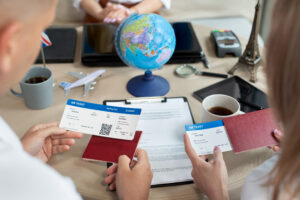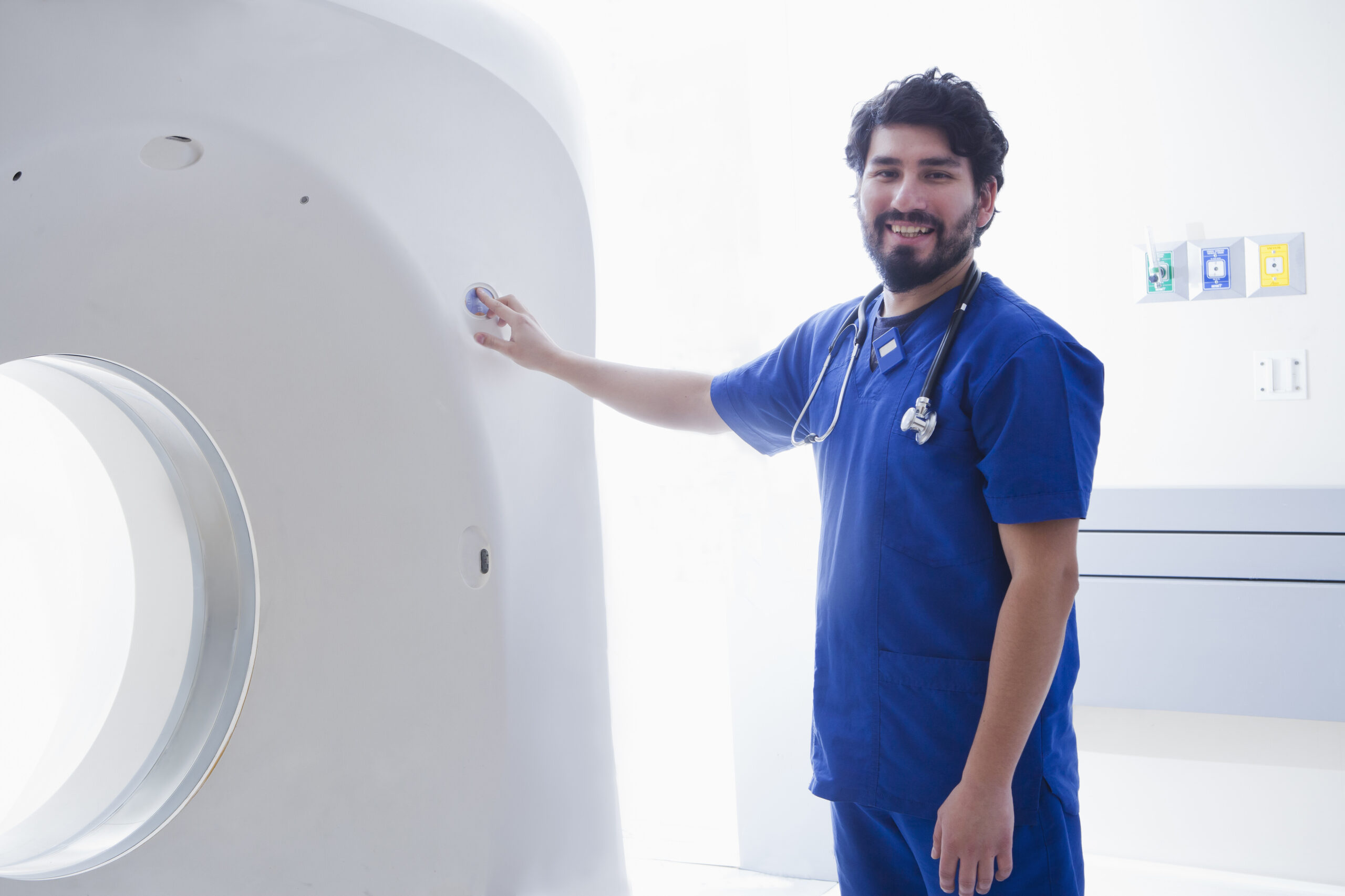Travel Nurses and Tax Season: How to Claim Your Expenses, Income, and Everything Else
Have you thought about what your tax returns are going to look like this year? Or next year?
When you’re a travel nurse it can be difficult to figure out just what things are going to look like. You’re not getting paid the same way that a traditional nurse does. So, what does that mean when it comes to tax time? We’re going to take a closer look.
Taxes in the Nursing Profession
Under normal circumstances your taxes as a nurse would be quite … well, normal. You would get a W2 from your employer and use that to complete your tax forms. Everything would be straightforward. You’d put your income on the line, fill in a few boxes and be done.
But when you’re doing travel nursing things get a little different. That’s because your pay isn’t all coming from the same place. And it’s not all considered ‘pay’ either. There’s more to it than that. So, what changes when you switch from a traditional nursing position to being a travel nurse?
Taxes as a Travel Nurse
First up, we need to look at the actual taxable part of your income as a travel nurse. This is the money that you get as your salary or hourly rate.
When you hire on as a traveling nurse you’ll be given a pay package that includes a number of things. The first is going to be the hourly rate that you agree to. That rate is the part of your package that’s taxable.
Keep in mind, however, that if you work for multiple services throughout the course of a year you’ll need to account for each of those places on your taxes. That means you’ll have multiple W2 forms that you need to include when you file your taxes.
But there’s more to it than that.
Your Pay Package
Chances are, your pay package includes more than just your actual hourly rate. It will likely also include things like a meal allowance, housing allowance, and perhaps another personal allowance for buying the things you need for your work (this amount might be intended for buying scrubs or other equipment).
All of these allowances are actually separate from your standard pay. And they are not taxable. That’s a great benefit for you because it means you’re getting that money and not having to pay back any of it. The reason why is that they’re actually considered reimbursements for your expenses rather than a type of pay.
When you’re doing your taxes, these amounts do not get factored into the amount you pay in taxes. They won’t be reflected on the W2 that you get from your employer either. However, because you’re being reimbursed for those things already you also can’t put them on your taxes as a work expense.
Work Expenses as a Travel Nurse
When you work as a travel nurse you do have expenses, because you have to go to the physical location that you’re working in and only for a short period of time. Unlike a traditional nurse who would buy or rent a place to live on a permanent basis, you’re responsible for doing so on a short-term basis.
You also need to buy food while you’re traveling. In total, you may have additional expenses that include:
- Licensing fees
- Gas/insurance for car
- Health insurance
- Malpractice insurance
- Continuing education expenses
- Housing
- Internet/utilities
- Food
- Medical supplies/equipment
A combination of these things are generally considered work related expenses on your taxes, but this is where you’re going to need to take a look at your pay package.
When you sign your contract for a specific project you’re going to get that pay package that details what you’re being paid and how. The expense reimbursements or allowances that you’re given are already in there. That means you technically haven’t paid that money.
If your pay package includes a $1000 a month allowance for a place to live that means you can’t claim that rent cost as a work expense on your taxes because you’ve already been reimbursed for it. If you’re given a $200 allowance to purchase your work uniform you can’t also include that amount on your taxes because you’ve been reimbursed.
See how that works?
You would need to keep careful track of what you’re spending versus what you’re already getting reimbursed for. From there, you would be able to see just how much you can claim on your taxes.
Setting Up Your Tax Forms
Now, let’s take a look at what this could look like on your taxes.
First up, your W2.
You need to make sure you have all of your W2 forms together for any companies you worked for during the course of the tax year.
Not all companies send their forms at the same time, so make sure you have a record of everyone you expect a W2 from and make sure you have all of them before you fill out your forms (or you can fill out your taxes if the forms do not come in by the deadline).
You’ll need to account for the total amount of your income on each W2 form as income on your taxes.
Once you’ve done this, you’ll need to look at your expenses.
Consider all of the categories discussed above and see how much you’ve actually spent in each of them. Then, account for the allowances that were included in each of your pay packages. Did you still spend more money than you were given?
If you have expenses that are directly tied to your work that go over and above what you were given by the company these can be counted as ‘work expenses.’
Work expenses will count against the taxable amount of your income, which can save you money at the end of the year.
If you double-count your work expenses however, you could end up with trouble. So make sure you’re properly counting what you were allowed and also counting only those expenses that really do apply to your work.
Working with the Pros
In the end, filing your taxes can be complicated for anyone. For those who have less traditional means of employment it can be even more difficult. And that’s where travel nurses fall on the spectrum. So, if you’re concerned about making sure your taxes are done properly, hire a professional.
There are plenty of tax experts out there who can help you understand which expenses are going to count in your favor and how to account for anything and everything possible.
Your best bet is to keep all of your receipts and records of everything that you’re paying out over the year. Then, come tax time, speak with a professional about everything you have, everything you earned, and what you can do to make sure you’re doing everything right.
A professional will help you ensure you get the largest return (or the smallest bill) that you possibly can, while making sure it’s all done according to the tax law. Don’t make a mistake on your taxes that could cost you. Instead, make sure that this part of your travel nursing experience isn’t the one that ruins the whole thing for you.
Check out these other great Staffdna articles

10 Books Every Healthcare Professional Should Have on Their Shelf
The healthcare industry is constantly changing, and therefore, healthcare professionals must pursue lifelong learning to stay ahead. Whether you are a nurse, physician, or healthcare leader, continuing to read increases your knowledge—leading to improved patient care, leadership development, and resilience in a tough field. This blog explores ten foundational books on patient care, medical ethics, leadership, and industry changes. These books will provide relevant content, practical advice, and motivation to navigate the complexities of the healthcare industry. The following are 10 books every healthcare professional should have on their shelf. 1. Being Mortal: Medicine and What Matters in the End — Atul Gawande Category: Patient Care, End-of-Life Decisions Source: Dr. Atul Gawande, a surgeon and public health researcher, examines the limitations of modern medicine concerning aging and death. He does so by recounting real-life accounts of patients and claims that our typical model of care at the end of life is flawed. He also advocates a patient-centered model that takes into account patients’ dignity and quality of life. Reason to Read It: This book provides key insights into the concept of patient care with compassion, and addressing the wishes of the patient, even when the wishes go beyond addressing medical treatment. 2. The Checklist Manifesto: How To Get Things Right — Atul Gawande Category: Patient Safety, Efficiency Source: Errors in healthcare can potentially be fatal. Gawande illustrates that simple checklists can significantly enhance patient safety, diminish medical errors, and improve hospital workflows. Reason to Read It: A must-read for every medical professional seeking a way to increase efficiency and decrease errors in high-pressure situations. 3. When Breath Becomes Air — Paul Kalanithi Category: Resilience, Mortality, Perspective Source: In this touching memoir, neurosurgeon Dr. Paul Kalanithi provides an intimate account of living, dying, and how it feels to be a physician and also a patient. When diagnosed with terminal cancer, Kalanithi reflects on the nature of medicine, as well as the nature of human life. Reason to Read It: This book is an emotional and philosophical journey through human resilience and meaning in one’s work within a healthcare setting. 4. How Doctors Think — Jerome Groopman Category: Medical Decision-Making, Critical Thinking Source: In this book, Dr. Groopman discusses how physicians come to an assessment, why they sometimes make errors, and how we can enhance physicians’ clinical decision-making. He highlights cognitive biases that can influence clinical reasoning, and patients can act as agents in their own care. Reason to Read It: Provides you with an avenue for physicians to strengthen clinical reasoning and accuracy of diagnosis. 5. The Healing of America: A Global Quest for Better, Cheaper, and Fairer Healthcare — T.R. Reid Category: Healthcare Systems, Policy Source: This book studies health systems around the world and shares what works and what doesn’t. Reid points out how various countries implement universal health care, manage costs, and achieve health outcomes for patients. Reason to Read It: It is a valuable resource for healthcare professionals and political leaders looking to improve the delivery of healthcare systems. 6. Strengths-Based Leadership — Tom Rath & Barry Conchie Category: Leadership, Team Management Source: This book is based on detailed Gallup Research, and it recounts how great leaders play to their strengths and build great teams as a result. It also provides tips for finding leadership talent and creating an environment for everyone to shine. Reason to Read It: This book is for healthcare leaders who want to create highly functioning and strong teams. 7. The Immortal Life of Henrietta Lacks — Rebecca Skloot Category: Medical Ethics, Research Source: The Immortal Life of Henrietta Lacks is a captivating book. It recounts the true story of Henrietta Lacks, the woman whose cancer cells were taken without her knowledge. Her cells were used to develop a breakthrough in medicines. It prompts important conversations related to medical ethics, patient rights, and scientific discovery. Reason to Read It: A powerful investigation into the complexities related to ethics in medicine and research. 8. Mindfulness for Healthcare Professionals — Jan Chozen Bays Category: Stress Management, Mental Health Source: The book presents mindfulness strategies for healthcare workers as a means of stress relief, burnout prevention, and improvement of patient interactions. Reason to Read It: A great choice for attention to nurses, doctors, and caregivers seeking to remain emotionally resilient and mentally lucid. 9. The Digital Doctor: Hope, Hype, and Harm at the Dawn of Medicine’s Computer Age — Robert Wachter Category: Healthcare Technology, Digital Transformation Source: Wachter investigates how technology is changing healthcare. From electronic medical records to artificial intelligence. He considers the benefits and hazards associated with the digital transformation of healthcare. Reason to Read It: A critical read for healthcare professionals working to adapt to a technology-based industry. 10. Compassionomics: The Revolutionary Scientific Evidence That Caring Makes a Difference — Stephen Trzeciak & Anthony Mazzarelli Category: Patient Care, Emotional Intelligence Source: The author has compiled research findings that highlight how compassion manifests itself in healthcare—resulting in better clinical outcomes, reduced healthcare costs, and greater professional well-being for those in the medical profession. Reason to Read It: Provides a valuable perspective on the importance of human empathy in the medical practice, and the mutual benefit it provides for patients and staff. Final Thoughts Continuous learning is important for healthcare professionals to ensure the optimal care of patients, be aware of changes within the field, and foster leadership and resilience. The ten texts presented above provide worthwhile knowledge regarding medical ethics, decision making, mental health, and the trajectory of healthcare. Whether you are a physician, nurse, or administrator in healthcare, be assured that allocating the time to read these texts will enhance your knowledge base, provide personal stimulation, and prepare you to deal with the challenges of contemporary medicine. Which of these books have you read? Do you have any recommendations to add to this list? Let us know in the comments!

Must-Have Certifications for Travel PTAs
Must-Have Certifications for Travel Physical Therapist Assistants We all are aware of the demanding nature of medical and allied healthcare jobs. Hence, many professionals are considering travel jobs as a means of better work-life balance. This is due to the flexible nature of travel jobs. Travel physical therapist assistant jobs offer a great opportunity to explore different locations while helping others regain strength and mobility. However, finding the best travel physical therapist assistant jobs can be difficult in such fierce competition. This is why having the right certifications and qualifications is essential to landing the best jobs. Why Certifications Matter for Travel Physical Therapist Assistants? It doesn’t matter if you’re just entering the field or looking to transition into travel physical therapist assistant jobs after some experience in permanent positions. Having proven data for your skills can make a significant impact on recruiters when applying for travel physical therapist assistant jobs and remote physical therapy jobs. Travel physical therapist assistant jobs are available in diverse medical settings. They can get jobs in rehab centers, outpatient clinics, hospitals, long-term care facilities, skilled nursing home facilities, or even in home healthcare. Hence, employers often require or even prefer specific certifications for travel physical therapist assistant jobs. This is because they want professionals who are fully equipped and prepared for diverse medical settings. Essential Qualifications for Travel Physical Therapist Assistants Before jumping into specialized certification, you need to know the basics. The fundamental qualifications to become a physical therapist assistant are: Complete Associate Degree The very basic and essential requirement is completing an associate degree from an accredited institute. The Commission on Accreditation in Physical Therapy Education (CAPTE) offers accredited programs and certifications. This is the entry to the workforce by landing physical therapist assistant jobs. Pass NPTE for Physical Therapist Assistants After completing the associate degree, the next step is to pass the National Physical Therapy Exam (NPTE). This exam is administered by the Federation of State Boards of Physical Therapy (FSBPT). If you are seeking physical therapist assistant jobs, this certificate is a must. Get State Licensure Licensure is essential to start practicing on physical therapist assistant jobs. However, every state has different licensing requirements. Hence, before you apply for travel physical therapist assistant jobs, verify if your license is valid in that state or not. If not, consider applying for state licensure by complying with standards. Some states approve general licensure with temporary credentials. 8 Top Certifications for Travel Physical Therapist Assistants Once you become a practicing physical therapist assistant, the journey is just starting. The job market is overcrowded, and standing out is essential. Hence, opting for top certifications can offer you the competitive edge to distinguish yourself from the rest. Staying updated with continuing education is the most viable path to becoming the top choice of employers. The best option for this is going for sought-after certifications that align with travel physical therapist assistant jobs. Such certifications not only fulfill licensing renewal requirements but also expand your existing knowledge and skills. Due to this, travel physical therapist assistants can opt for multi-disciplinary roles and other allied travel careers that cross paths with physical therapy assistant jobs. Some of the valuable certifications for travel physical therapy assistants are: 1. Basic Life Support (BLS) Certification This is the most basic certification for any medical professional. Emergencies can happen to anyone at any time, anywhere. Hence, physical therapy assistants need to have BLS certification to administer life-saving interventions when needed. This certification trains professionals to care for critically ill or injured patients. 2. Advanced Cardiovascular Life Support (ACLS) Certification Many people, after going through cardiovascular problems, experience mobility issues. Hence, ACLS certification offers physical therapy assistants a great advantage. With this specialization, they can go for roles in cardiac units to offer physical therapy to heart patients. This certification can also boost earning potential, as medical professionals experienced with cardiac issues are highly in demand. 3. Pediatric Advanced Life Support (PALS) Certification Similar to BLS, PALS certification is also focused on life-saving interventions for critically ill or injured infants. The only difference between BLS and PALS is that it is specialized for infants only. This certification trains professionals beyond basic life support and CPR, training them for the unique needs of pediatric patients. 4. CHSE Certification With the rapid progress in the medical industry, CHSE certification has become essential for medical professionals. This certification teaches professionals the use of simulation to educate and improve healthcare. It is a great certification for physical therapist assistants looking to advance toward teaching roles. 5. Orthopedic Certified Specialist (OCS) This certification is administered by the American Board of Physical Therapy Specialties (ABPTS). This is one of the only 10 specialty certifications that are recognized by AAPTA. It offers knowledge and skills to treat musculoskeletal issues such as fractures, bone deformities, and other musculoskeletal and orthopedic problems through physical therapy. This certificate greatly enhances your resume, making you a preferred choice for most physical therapy assistant jobs. 6. Geriatric (GCS) Certification This is another certification awarded by the American Board of Physical Therapy Specialties (ABPTS). This certification provides knowledge and skills to treat elderly people above the age of 65. This includes proficiency in assessing, treating, and evaluating patients who have crossed the age of 65 and are experiencing medical problems. 7. Lymphedema Certification Physical therapy assistants are crucial in recovery units, especially in post-op units and cancer recovery centers. Patients suffering from lymphedema need physical therapy to improve mobility during recovery. Hence, this course can significantly help physical therapist assistants to stand out and even direct them toward physical therapy jobs. 8. Neurological Specialty Certifications Many times, patients have mobility issues due to neurological issues. Hence, acquiring certifications in neurological specialties enables physical therapist assistants to successfully treat patients. All of the above specialty certifications are very sought-after and beneficial for travel physical therapist assistant jobs. However, remember that most specialty certifications must be renewed every two to five years. The renewal requirements typically

Comparing Travel PTA vs. Permanent PTA Jobs
Comparing Travel Physical Therapist Assistant vs. Permanent Physical Therapist Assistant Jobs Are you a physical therapist assistant but aren’t sure which career path is right for you? The healthcare industry is expanding rapidly. Hence, physical therapist assistant jobs are rising in demand significantly. This is because the US is facing a critical shortage of healthcare professionals. Because physical therapist assistant jobs entail a wide range of responsibilities, they often fill the staff shortage gaps. However, understanding the difference between permanent and travel jobs is essential, regardless of whether you’re just beginning your career or looking to make a transition. Choosing between travel physical therapist assistant jobs and permanent physical therapist assistant jobs can be a significant decision. Both options come with unique perks and challenges. Hence, weighing the pros and cons of both is important to determine which fits your lifestyle and career goals best. What is a Travel Physical Therapist Assistant Job? Travel physical therapist assistant jobs are temporary assignments that typically last 13 to 28 weeks, with the option to extend. Physical Therapist Assistants in these roles move between locations, often filling in for staff shortages at hospitals, clinics, or rehabilitation centers. These roles fall under the broader umbrella of travel healthcare jobs, much like travel nurse jobs and travel surgical tech jobs. Pros of Travel Physical Therapist Assistant Jobs 1. High Pay Rates Travel physical therapist assistant jobs are very well compensated with high salaries as compared to permanent roles. The travel physical therapist assistant salary often compares to the salaries of many high-demand fields. 2. Adventure and Flexibility If you enjoy traveling and variety, travel physical therapist assistant jobs are the ideal path for you. This is because on travel assignments, you get to explore new cities and may even countries if you pursue cross-country assignments. 3. Networking Opportunities Travel jobs are available in diverse medical settings. Due to this exposure to diverse settings, you can expand your skills and connections across the healthcare sector. 4. Housing and Travel Allowances Travel jobs often come with many financial perks, including housing stipends, travel reimbursement, and much more. This way, you can reduce your living expenses significantly, even in metropolitan cities. 5. Quick Career Advancement Travel positions are available in diverse medical settings. Hence, travel physical therapist assistants get to work in different facilities, which allows them to gain experience in varied clinical settings. This way, you can fast-track your skills and gain knowledge and experience from different cases. This will boost your resume significantly. Cons of Travel Physical Therapist Assistant Jobs 1. Lack of Job Stability With short-term contracts, you’re always preparing for the next role, unlike permanent physical therapy jobs near me that offer stability. 2. Licensing Requirements Moving between states may require multiple physical therapist assistant licenses or CEUs. This is because each state has its own licensure requirements. 3. Social Disruption Travel jobs require constant relocation. Due to this, personal relationships and lifestyle stability are deeply. Without a long-term stay, it’s difficult to maintain friendships and relations. 4. Inconsistent Benefits Not all travel physical therapist assistant jobs are the same. Although the benefits and perks of travel jobs are what make them lucrative. However, some employers offer even fewer benefits than traditional full-time roles. This is because many travel jobs do not offer long-term benefits like health insurance and retirement plans. What is a Permanent Physical Therapist Assistant Job? Unlike travel jobs, permanent physical therapist assistant jobs offer long-term placement in clinics, hospitals, nursing homes, or private practices. These roles provide consistency and routine, ideal for individuals looking for a more grounded career path. Think of it like comparing remote physical therapy jobs to in-person therapy jobs—both serve vital roles but offer different experiences. Pros of Permanent Physical Therapist Assistant Jobs 1. Job Security A consistent schedule and reliable income often make permanent physical therapist assistant jobs very considerable. Unlike travel jobs, permanent roles have steady monthly incomes and daily schedules. Their responsibilities are consistent, which makes the job very secure. 2. Stable Benefits The benefits of full-time positions are very good. They often come with paid time off, health insurance, and retirement plans. However, these benefits are for the long term. However, there are not many short-term benefits like travel jobs. 3. Deeper Patient Relationships When you are constantly in touch with a patient throughout their recovery, it builds rapport with patients. Due to this continuity of care, physical therapist assistants can offer long-term recovery benefits. 4. Professional Growth Within One Setting Staying in one location for decades gives the opportunity to grow into supervisory or administrative roles. This is because it helps them gain deep insights into the medical setting, allowing them to understand the operations better than anyone else. 5. Work-Life Balance Permanent physical therapist assistant jobs do not require relocation for every assignment after every few weeks. Hence, permanent roles offer a routine that enables professionals to have a stable home life. Cons of Permanent Physical Therapist Assistant Jobs 1. Lower Pay Compared to Travel Jobs Although permanent physical therapist assistant jobs offer competitive salaries. However, compared to travel jobs, the earning potential falls a bit short. This happens with most comparisons of permanent and travel jobs. 2. Less Variety Over time, when you work in the same facility, things start to become repetitive. Due to this, many physical therapist assistants complain about job satisfaction. Even though the job is very versatile with a host of responsibilities. However, at one point, you have seen it all. 3. Limited Geographic Flexibility In permanent physical therapist assistant jobs, professionals are mostly tied to a single location. Due to this, they miss out on adventurous experiences in other states. This geographical limitation also limits their potential to work in diverse healthcare settings. Which One is Right for You? The choice between travel and permanent physical therapist assistant jobs largely depends on your personal and professional goals. Consider the following: Are you seeking adventure, higher pay, and rapid skill development? If your answer

Top Certifications for Ultrasound Tech Jobs
As the medical sector expands with progress, medical professionals are required to pursue advanced certification to meet the requirements. In this pursuit of advancement, ultrasound tech jobs are not behind. Ultrasound technicians, also known as sonographers, are an essential part of the medical teams, especially in modern healthcare. This is because treatment for any medical condition is impossible without diagnosis, and an ultrasound helps professionals look inside the patient to identify the underlying cause. Ultrasound tech jobs use high-frequency sound waves to produce detailed images of the body’s internal structures. This way, ultrasound techs assist in diagnosis and treatment. Due to this critical role, the demand for ultrasound tech jobs is rising. Hence, securing the right certification is important to significantly enhance your employability, increase your earning potential, and open doors to more specialised roles. However, understanding the top certifications and how they impact your professional standing in the job market is essential to successfully upgrading your credentials. There are many recognized credentialing bodies, like ARDMS, ARRT, CCI, and more, that offer various certifications for ultrasound tech jobs. Why Certifications Matter for Ultrasound Tech Jobs? Certifications hold much value for ultrasound tech jobs. This is because they not only validate your skills and offer deeper knowledge but also provide a strong professional standing in the competitive job market. With the right certifications, you can become the top choice of most employers. In the ever-evolving landscape of the medical industry, employers often list jobs with compulsory certification from accredited organizations as requirements. Hence, oftentimes certifications transition from a want to a necessity. This is why ultrasound techs often go for different certifications. Moreover, certified ultrasound techs are typically offered higher ultrasound tech salary due to their extensive knowledge and skills. This can also open doors to more advanced and specialized ultrasound tech jobs, where you can maximize your earning potential. Top Accredited Certifications for Ultrasound Tech Jobs The most recognized certifications for ultrasound tech jobs are the ones offered by the American Registry for Diagnostic Medical Sonography (ARDMS) and the American Registry of Radiologic Technologists (ARRT). Other credentialing bodies also offer ultrasound tech certifications like Cardiovascular Credentialing International (CCI), National Center for Competency Testing (NCI), Joint Commission on Allied Health Personnel in Ophthalmology (JCAHPO), etc. Let’s have a look at some of the top certifications from these credentialing bodies: 1. ARDMS — American Registry for Diagnostic Medical Sonography The ARDMS is the most widely recognized certification for ultrasound tech jobs. It offers a range of credentials based on specialization, such as: RDMS (Registered Diagnostic Medical Sonographer) RDCS (Registered Diagnostic Cardiac Sonographer) RVT (Registered Vascular Technologist) RMSKS (Registered Musculoskeletal Sonographer) To qualify, candidates must meet educational and clinical experience requirements and pass rigorous exams. Most employers in hospitals, imaging centers, and OB/GYN practices prefer or require ARDMS-certified candidates. It’s a key to landing the best sonographer jobs and increasing your ultrasound technician salary. 2. CCI — Cardiovascular Credentialing International CCI offers several valuable credentials for those pursuing careers in cardiac, vascular, and phlebology ultrasound. Two of the top certifications for ultrasound tech jobs from CCI are: RCS (Registered Cardiac Sonographer) RVS (Registered Vascular Specialist) If you’re specifically targeting cardiovascular sonographer roles, CCI certifications are often accepted alongside or instead of ARDMS certifications. Cardiac sonographer salary is often higher than that of general ultrasound tech jobs. Due to these certifications from CCI, you can enhance your earning potential and earn a higher cardiac sonographer salary. Job Insight: Certified cardiac sonographers enjoy a competitive cardiac sonographer salary, often exceeding that of general sonographers. 3. ARRT — American Registry of Radiologic Technologists Though ARRT is best known for radiologic and MRI technologist certification. However, they also offer Sonography credentials as it is also an imaging modality similar to MRI. It’s an excellent alternative for those entering the field from a radiologic background. The general certification for sonographers from ARRT is Registered Technologist in Sonography (R.T.). Since the profession is much similar to MRI tech jobs, many professionals cross-train. Hence, with a growing interest in MRI tech jobs, they can get lucrative MRI tech salary packages. 4. NCCT — National Center for Competency Testing While not as widely accepted as ARDMS or CCI, NCCT offers a National Certified Medical Sonographer (NCMS) credential that can be beneficial for entry-level techs, especially in smaller facilities or clinics. Consider NCCT if you’re already working in allied healthcare and looking to transition into sonography. 5. JCAHPO — Joint Commission on Allied Health Personnel in Ophthalmology The JCAHPO offers ophthalmic ultrasound certifications, which can be a good addition for ultrasound tech jobs if you are planning to pursue ophthalmic specialization. Career Outlook and Opportunities for Ultrasound Tech Jobs According to the U.S. Bureau of Labor Statistics, the growth rate of diagnostic medical sonographer jobs is 14% over the next decade, which is well above the average for all occupations. This means more listings for: Ultrasound tech jobs near me Sonographer jobs Travel ultrasound tech jobs in hospitals, clinics, and mobile imaging units You’ll also find ultrasound tech roles in departments like labor and delivery, cardiology, and even emergency rooms (ER tech jobs). Additional Career Paths to Explore for Ultrasound Techs Many ultrasound techs later pursue other healthcare certifications to expand their scope or shift focus. Common crossover careers include: MRI Technologist – Certified ultrasound techs can also transition into MRI tech jobs with some certifications. This is because both imaging modalities have many similarities. Travel Sonography – Consider travel jobs or allied travel careers if you crave flexibility and higher pay. Search tip: Look for travel ultrasound tech jobs via top allied travel career platforms and healthcare staffing agencies. How to Choose the Right Certification When selecting a certification, consider: Your Career Goals – Do you want to specialize in vascular, OB/GYN, or cardiac sonography? Employer Requirements – Check local ultrasound tech job listings to see preferred credentials. Geographic Preferences – Salaries and certification requirements vary by region. Advancement Opportunities – Certifications like ARDMS and CCI open doors to supervisory

Infectious Disease Specialist Salary and Career Growth
Infectious Disease Specialists are a very important part of the healthcare system. They have a huge role to play in the diagnosis, management, and prevention of various infectious diseases. An infectious disease specialist deals with bacterial, viral, fungal, and parasitic diseases, seeing that patients are given the right care to heal and cope with long-term infections. As the global health environment continues to change, there is an ongoing need for specialists who can deal with intricate infectious diseases, making this a lucrative career path for medical professionals. What Is an Infectious Disease Specialist? An Infectious Disease (ID) Specialist is a physician who specializes in the prevention, diagnosis, and treatment of bacterial, viral, fungal, and parasitic infections. ID Specialists can diagnose conditions such as HIV, tuberculosis, hepatitis, and other emerging conditions such as COVID-19. They work in clinics, private practice, and hospital settings, and may collaborate with other healthcare providers like surgeons, general practitioners, and public health professionals. #image_title Image Souce: Freepik ID specialists need to have advanced medical training. This training often needs extra years of fellowship after they complete their residency program. This intensive training, along with the skills needed to manage the complexities of infectious diseases. This makes the profession both challenging and rewarding. Infectious Disease Specialist Salary Overview The pay scale of an Infectious Disease Specialist is quite variable depending on many things. They include location, years of experience, and the facility where they are currently employed. Nonetheless, on average, ID specialists receive good pay. This gives a good idea of the level of experience and specialized knowledge involved. In the United States, the mean salary for an Infectious Disease Specialist is usually between $200,000 and $300,000 annually. However, the geographic location, type of employer, and years of experience can have a substantial impact on the final salary. Geographic Location The salary for an Infectious Disease specialist varies from state to state or city to city. Areas that have a high cost of living, like New York, California, and Massachusetts will pay healthcare workers including Infectious Disease Specialists higher wages. Rural areas on the other hand pay less, but the need for healthcare workers there can provide room for negotiation. Experience and Education As with most other medical careers, experience is a big part of determining the salary. An ID specialist fresh from qualification can expect to earn less than one with more than 5 years of experience. A more experienced person can earn much more as they advance in their career. On average, a field professional with 5–10 years of experience can safely anticipate earning between $230,000 and $270,000 per year. Moreover, professionals who seek board certifications, fellowships, or higher studies in fields such as virology, immunology, or epidemiology can experience a significant boost in their salaries. Certifications, such as the ARRT (American Registry of Radiologic Technologists) or CHSE (Certified Healthcare Simulation Educator), while more prevalent in other fields, can also boost an infectious disease specialist’s reputation and provide opportunities for better-paying positions. Additional Opportunities for High Earnings Infectious Disease Specialists can increase their income by seeking traveling nurse or travel physician positions, where they may work on a contract basis in high-need locations. These opportunities usually carry additional benefits, such as increased compensation rates and housing allowances. Career Growth for Infectious Disease Specialists The prospects for Infectious Disease Specialists in the future are bright with the ongoing expansion predicted as the demand for skills in infectious disease management increases worldwide. Furthermore, there are various avenues that ID specialists can pursue that allow for development and professional advancement. Expanded Roles in Healthcare Settings Most ID professionals begin in clinical practice, diagnosing and treating infectious diseases in hospitals or private practice. Yet, with experience, they can move into teaching or into administrative roles within healthcare organizations. Physician Assistant Jobs or Nurse Practitioner Jobs Near Me are examples of job opportunities in which an ID specialist’s skills are desired, though these may need to be accompanied by additional training or certifications. #image_title Image Source: Freepik Also, leadership roles like department heads or infection control medical directors are typical promotions. Those interested in public health can transition into governmental or global health agency jobs. Some of those jobs are with the CDC or WHO, where they can assist with international disease management strategies. Further Specialization For those who want to further specialize, there are several infectious disease subfields such as HIV/AIDS management, tropical disease, and antimicrobial resistance they can choose from. By attending additional education or fellowship opportunities, an ID specialist can specialize within a specific area of treatment of infectious diseases. Specialization in areas that are in higher demand can provide more opportunities both in terms of career advancement and increased salary potential. Telemedicine and Remote Roles As telemedicine has expanded, many ID experts are today working remotely, providing consultations and diagnoses to patients in underserved communities. This trend was strong over the past few years and will likely keep growing. It is going strong especially after the COVID-19 pandemic. Remote Nurse Positions, Remote Pharmacist Positions, and others are opening for healthcare experts in infectious diseases as well. Research and Academia For those interested in academic and research careers, the possibility of teaching at medical schools or conducting clinical research on infectious diseases presents an exciting alternative career path. Investigating emerging diseases and treatments can be highly rewarding, and positions in universities, private laboratories, or government agencies frequently include extra funding and prestige. Factors Influencing Career Growth in Infectious Disease Though salary is an important part of professional development, other factors also determine the professional path for Infectious Disease Specialists: Job Demand: Ongoing discovery of new diseases, worldwide interest in pandemic prevention, and increasing complexity of infection treatment in immunocompromised patients drive high demand for qualified specialists. Work-Life Balance: With the ID specialist, the work can be heavy, especially when handling outbreaks or pandemics. Yet, the flexibility of job roles in academic, research, or telemedicine environments can provide a more desirable work-life balance. This is frequently a

Must-Have Certifications for Travel PTAs
Must-Have Certifications for Travel PTAs Travel physical therapist assistants (Travel PTAs) are a big part of restoring patients to mobility and a better quality of life with the added benefits of flexibility and adventure in short-term assignments across the country. As demand for therapy positions continues to increase steadily, especially in travel positions, standing out in a competitive profession takes more than your associate degree and license. To gain the best travel PTA jobs and enhance your earning capacity, it is very important to have certifications that demonstrate your skills and commitment to delivering high-quality patient care. If you are interested in a travel PTA career or seeking to enhance your resume for preferable assignments, the following is an overview of the important certifications that will place you ahead of others. 1. Basic Life Support (BLS) Certification First on the list is BLS certification. This certification is usually non-negotiable for any medical position, especially in facilities such as hospitals, outpatient facilities, and skilled nursing homes. Presented by the American Heart Association or the American Red Cross, BLS training involves important life-saving methods such as: CPR for adults, children, and infants Use of automated external defibrillators (AEDs) Relief of choking in responsive and unresponsive patients Travel PTAs who are BLS-certified are better at responding to emergency situations. This makes them become more desirable to both employers and patients. 2. Cardiopulmonary Resuscitation (CPR) Certification While it is almost always bundled together with BLS, an independent CPR certification is sometimes mandated. It is particularly required by small facilities or home health organisations. It may not seem complex, but having this credential current (ordinarily every two years) reflects your preparedness to respond in life-and-death situations. Image Source: Freepik While looking over travel jobs or signing on with a medical staffing firm, make sure that your CPR certification is current and sanctioned by a nationally accredited agency. 3. Physical Agent Modalities Certification Physical therapist assistants practicing in states such as California or Pennsylvania might require specific training or certification in physical agent modalities (PAMs). This is the therapeutic application of ultrasound, electrical stimulation, diathermy, and other equipment. State regulations differ, but some states require that you must provide evidence of formal education in PAMs before you are allowed to treat patients with these modalities. For travel PTAs, having a PAM certification on your resume broadens your eligible locations and shows employers that you are ready to hit the ground running. 4. LSVT BIG Certification (Parkinson’s Therapy) If your goal is to work with Parkinson’s disease and other movement disorders patients, an LSVT BIG certification offers a specialized credential that can help you become more competitive in the job marketplace. The certification educates physical therapists and their assistants in an organised treatment modality aimed at enhancing mobility, strength, and balance while they fulfil their basic duties. Image Source: Freepik With neurological conditions increasing in frequency and more facilities in need of specialists, this certification can help you in getting travel PTA opportunities in outpatient neuro rehab, home health, and skilled nursing facilities. 5. NDT Certification (Neuro-Developmental Treatment) Neuro-Developmental Treatment (NDT) is a manual treatment method for people with neurological disorders like cerebral palsy or stroke. Although this is a more advanced certification, PTAs working with supervising physical therapists in rehab facilities can benefit from NDT training. Though not necessary for all travel physical therapist assistant positions, NDT certification can put you on the higher-paying scale with pediatric and adult neuro rehab clinics. 6. OSHA and HIPAA Compliance Training Where you work is irrelevant as patient safety and privacy are always the priority. OSHA and HIPAA training are important for many healthcare staffing agencies and travel assignments. These short courses address: Infection control Exposure to bloodborne pathogens Workplace safety protocols Patient confidentiality standards Remaining compliant with OSHA and HIPAA not only satisfies facility demands but also makes sure that you are a professional and responsible healthcare provider to your employers. 7. Specialized Certifications by Patient Population Depending on your field of interest, you might be interested in pursuing certifications that work with a particular patient demographic. These are: Pediatrics: Pediatric therapeutic interventions or developmental milestones courses Geriatrics: Fall prevention or senior mobility strategies certifications Orthopedics: Post-op rehab training for total knee and hip replacements With more hospitals in pursuit of PTAs with specialty skills, these extra certifications will help you in securing more targeted and rewarding traveling positions. 8. NRP Certification (Neonatal Resuscitation Program) Although not required for all PTA positions, NRP certification can be beneficial if you are part of a multidisciplinary team that involves NICU personnel or pediatric specialists. It is useful if you intend to assist therapy programs in hospitals or clinics that treat infants and children. Travel PTAs with NRP certification are more likely to be hired for jobs in family-centered facilities or pediatric rehab centers. 9. Infection Control Certification Since the COVID-19 pandemic, most healthcare employers have increased infection control measures. Being certified in infection control, or having up-to-date certification, can heavily increase your chances of securing assignments quickly. Getting certification that is acknowledged by your state board will give you a better chance at selection and assignment priority. More states now actually require this certification during hospital or long-term care facility placements as part of onboarding. Travel physical therapist assistants who are already certified will stand out to hiring managers during the recruitment process. Why Certifications Matter in Travel Assignments When you are competing for high-demand travel physical therapist assistant jobs, certifications are your guarantee of competence, flexibility, and initiative. Most facilities have short-staffed situations and require travelers who can make an impact from day one. That implies the more you are trained, the more doors you will open in terms of geography and pay. Furthermore, medical staffing agencies tend to prefer certified PTAs when filling competitive travel positions with candidates. Also, they understand that credentialed practitioners reduce liability and significantly improve patient outcomes. How to Stay Organized with Your Certifications Having multiple certifications is a challenge to keep up






